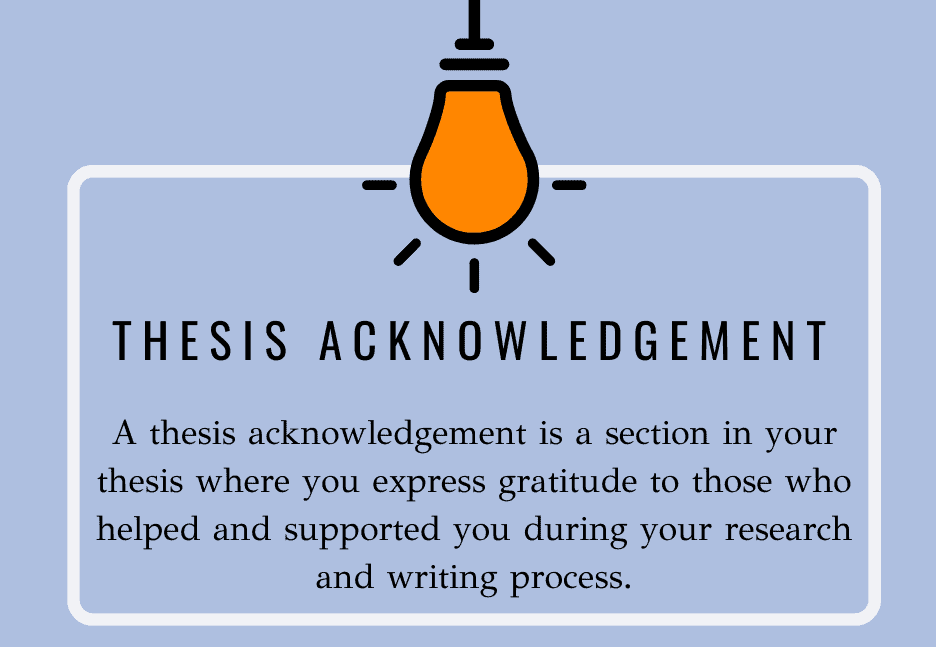When writing a thesis or any significant academic work, acknowledging the people who have helped you along the way is essential. This section of your paper, known as the “Acknowledgements,” is where you get to express gratitude to those who have supported, guided, or inspired you. Crafting a meaningful acknowledgement can be a bit of an art. In this article, we will delve into different styles of acknowledgements, providing you with a comprehensive guide to writing your own.
Introduction to Acknowledgements
Acknowledgements serve as a formal way to thank those who contributed to your academic journey. Whether it’s your mentor, family, friends, or any other supporter, a well-written acknowledgement can express your appreciation and recognition of their role in your success. But how do you go about writing one that feels both personal and professional?
What Are Acknowledgements For?
Acknowledgements are for appreciation. The idea is just to thanks a few those who supported you emotionally, financially of intellectually. This is your public shoutout to the individuals who contributed towards what you have created. Why is this important? After all, we owe to where it is due and nothing would be better than letting the people who helped you know how much they have made an impact on your life.
Acknowledgements — Formal and Professional
The acknowledgements for these works were more formal, similar to those found in Ph.D. theses. It may begin with thanking the advisor or committee members and then financial supporters or institutional bodies. For instance:
Dr. Jane Smith, It is with deepest appreciation for you and your…
Warm and Personal Acknowledgements
On the other hand you might want to add a bit of warmth and personality to your acknowledgements. This makes your thanks feel more genuine. For example:
“To my family, thank you for your never ending support and encouragement. Mom and Dad, you believed in me and that gave me the strength to keep going even in the tough times. And to my friends, you put up with me and that made this journey so much more fun.”
Here the personal touch adds to the intimacy.
Challenge-Centric Acknowledgements
If you faced big challenges during your journey you might want to highlight those in your acknowledgements. This style shows resilience and gratitude to those who helped you through the tough times. For example:
“Writing this thesis was no easy task. I am very thankful to my advisor, Dr. John Doe, who put up with me through multiple drafts and revisions. Your help during those tough times was key to my success.”
This approach shows that you recognize and appreciate the support given during difficult periods.
Acknowledgements in the spirit of Institutions
Identifying institutions or organizations can be key if they gave resources, support, money. For instance:
We thank the University of XYZ for providing research facilities and resources necessary to conduct this study. I would also like to thank the Department of ABC for encouraging this project and supporting it administratively.
This way institutional contributions are properly acknowledged.

Reflections, and Philosophical Thanks
If you want your acknowledgment to show that a meaningful thanks, the best tone is either reflective or philosophical. For example:
Now as I look back on this voyage, I see that it was not only the victory of my own but also win for all who supported me. All of you have had a permanent place on my academic journey, and for that I am deeply appreciative.
This one packs on a little extra thinking with your gratitude — which is always really important!
Using the FREE Acknowledgements Template
For those looking for a structured approach, a FREE acknowledgements template can be a lifesaver. Templates provide a guideline for writing acknowledgements, ensuring that you don’t miss any key elements. You can find such templates online, which can be customized to fit your specific needs.
Tips for Crafting Your Acknowledgements
- Be Specific: Mention names and roles clearly.
- Be Sincere: Genuine thanks go a long way.
- Be Concise: Keep it brief but meaningful.
- Be Organized: Structure your acknowledgements logically, from most formal to most personal.
Read More: Top AI and Machine Learning Trends: Exploring the Future of Technology in 2024 and 2025
Conclusion
Acknowledgements are more than just a formality—they’re a way to celebrate the contributions of others to your success. Whether you choose a formal tone, a warm and personal touch, or a reflective style, what matters most is that your gratitude comes through clearly. Take the time to craft your acknowledgements thoughtfully, and you’ll provide a fitting tribute to those who helped you along the way.







